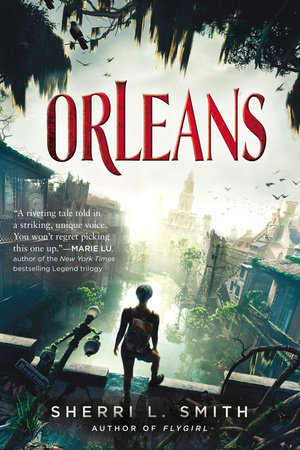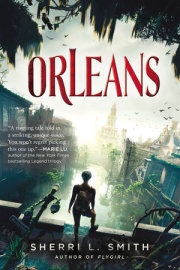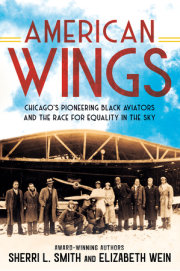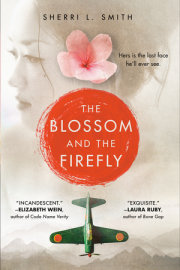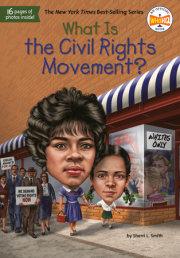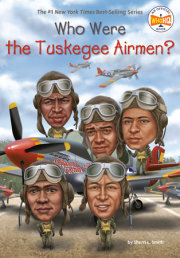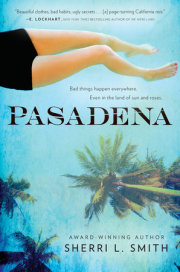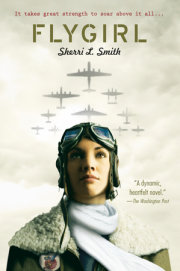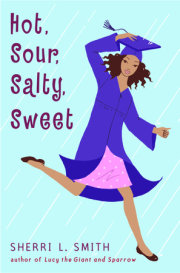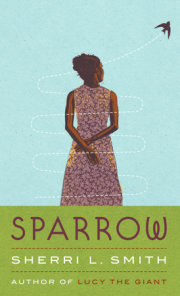ALL ALONE ON THE WRONG SIDE OF THE WALL.
I GOT TO FIGURE OUT WHAT COME NEXT.
Only so many places to run to when you ain’t got a tribe. Maybe I find another group of OPs somewhere, but Lydia’s tribe been one of the biggest and strongest. If they ain’t safe, nobody be. It ain’t easy finding a tribe, neither. Everyone take babies glad enough. If you live with folks your whole life, you ain’t so likely to turn against them. But if they take in someone older, even if they only seven or eight, they ain’t got an idea what kind of egg they got—chicken or snake. So even if you ain’t turning against them, they might turn against you, just to be sure.
Lydia say she want Baby Girl to have a better life. Can’t see how a tribe gonna give her that. Ain’t no such thing as a better life in Orleans. Not really. Only chance this baby got be in the Outer States. So I gotta get her there.
OTHER BOOKS YOU MAY ENJOY
Champion Marie Lu
Crossed Ally Condie
The 5th Wave Rick Yancey
Flygirl Sherri L. Smith
Fractured Teri Terry
Legend Marie Lu
Matched Ally Condie
Prodigy Marie Lu
Reached Ally Condie
Slated Teri Terry
SEPTEMBER 14, 2004
EDMUND BROUSSARD MOUNTED THE STEPS TO the levee above the old Café Du Monde off of Jackson Square. The sky was pale and colorless above him, the grass a vibrant green at his feet as he faced the wide expanse of the rolling Mississippi River. Behind him, a handful of revelers on the ironwork balconies of the French Quarter could be heard drinking their Hurricanes and ignoring the voluntary evacuation order that had sent so many tourists home. The café was still serving their hot beignets and chicory coffee. A few persistent people strolled the green lawns of the square outside St. Louis Cathedral.
Edmund opened the black case he carried in his left hand and pulled out his trumpet. The yellow brass reflected the city back on itself in the flat afternoon light. He put the horn to his lips and defiantly blew “When the Saints Go Marching In” into the unnaturally still air. He was not leaving New Orleans, no matter what the weathermen said. He was not leaving his home. New Orleans would stand against any storm that came her way. The TV crews loved it, the image of a lone man facing nature, refusing to bend.
• • •
Hurricane Ivan turned east, barely brushing the city with rain as it ran its devastating course along the coast of Alabama. It returned to the mouth of the Mississippi and faltered there. New Orleans was spared. Laissez les bons temps rouler. The fabled city that care forgot danced on.
The next time, they were not so lucky.
August 29, 2005
HURRICANE KATRINA
Saffir-Simpson Category 3 at landfall
Casualties: 971; Survivors: 30,000
September 14, 2014
HURRICANE ISAIAH
Saffir-Simpson Category 4 at landfall
Casualties: 532; Survivors: 27,800
August 25, 2015
HURRICANE LORENZO
Saffir-Simpson Category 3 at landfall
Casualties: 1,432; Survivors: 22,345
June 30, 2016
HURRICANE OLGA
Saffir-Simpson Category 5 at landfall
Casualties: 2,022; Survivors: 20,323
July 27, 2017
HURRICANE LAURA
Saffir-Simpson Category 4 at landfall
Casualties: 1,371; Survivors: 18,952
July 29, 2017
HURRICANE PALOMA
Saffir-Simpson Category 5 at landfall
Casualties: estimated 3,500;
Survivors: estimated 15,452
October 20, 2019
HURRICANE JESUS
Category 6 at landfall,
based on new Saffir-Simpson Scale
Casualties: estimated 8,000;
Survivors: estimated below 10,000
AFTER THE STORM DEATHS CAME OTHER CASUALTIES: deaths by debris, cuts, tetanus, or loss of blood; suicide; heart attacks caused by stress of loss, or stress of rebuilding, or just as often from the lack of medicines used to treat common ailments. The list of no-longer-treatable diseases grew: diabetes, asthma, cancer. Domestic violence rose, along with murder.
Then came the Fever.
And the Quarantine.
Excerpt from the
DECLARATION OF QUARANTINE
issued by FEMA and the Center for Disease Control,
September 20, 2020:
------------------------------
For the safety of the population at large, we deem it advisable to seal off all storm-affected areas of the Gulf Coast region. No citizens or personnel will be allowed to cross the border without blood testing for Delta Fever. This is an epidemic of proportions we have not witnessed since the Spanish Influenza of 1918. The Quarantine will be reevaluated as the disease runs its course and we make progress toward treatment and a cure. Until then, all borders will be sealed.
Excerpt from the
DECLARATION OF SEPARATION,
courtesy of the Smithsonian Collection,
March 11, 2025:
------------------------------
Therefore it is with great regret and pain for our fellow citizens that the United States Senate has agreed to withdraw our governance of the affected states of Alabama, Florida, Georgia, Louisiana, and Texas. The shape of our great nation has been altered irrevocably by Nature, and now Man must follow suit in order to protect the inalienable rights of the majority, those being the right to Life, Liberty, and the Pursuit of Happiness, the foremost of those being Life.
Signed this day, the Eleventh of March,
Two Thousand Twenty-Five, in the presence of witnesses,
The President of the United States of America
The Senate of the United States of America
The House of Representatives of the United States of America
The Governor of the former State of Alabama
The Governor of the former State of Florida
The Governor of the former State of Georgia
The Governor of the former State of Louisiana
The Governor of the former State of Texas
OCTOBER 30, 2056
THERE BE SEAGULLS CATCHING THE BREEZE overhead. I sneeze and wipe my nose on the back of my bare brown arm.
“That’s the batch of it, Miss de la Guerre. The two books, the formula, and the bottle, genuine glass.” The smuggler McCallan point his boot at the things spread out on my blanket over the broken ground.
We be near the Market, where the old levee used to be, across from St. Louis Cathedral. What once been a green hill now be a beach dune made of debris—everything from washing machines to refrigerators and old cars been hauled and dumped here trying to shore up the levee. But the land gave way when the river rose, and the junk be left behind. Daddy used to say you could give a history of the place just by looking at those layers of trash.
Beneath us, on the river side of the hill, be a dusty gray beach of pulverized concrete, ground thin by storms. “The fabled cement beaches of Orleans,” McCallan call them. “Finer than the black volcanic sand of Hawaii, or the pink sugar sand of the old Caribbean.” I don’t know about that. Nothing left of Hawaii or the Caribbean since the water rose and the storms grew heated. It’d take a deep-sea diver just to find them. But Orleans still be here.
I snort at the blanket and give McCallan a hard look. “And the blood, old man? I done give you a good, solid downpay on it. What about that?”
McCallan’s eyes crinkle like he be laughing at me. He should know better. Grinning like a fool only make me angry. “Sorry, sugar, they were out of both positive and negative at the banks. There’s a blood supply shortage out there.” He wave his gloved hand behind him, toward the wall and the Outer States. “I ain’t risking my neck and smuggling to the Delta when I’m about to retire, now am I?”
I fold my arms. “We had a deal. I need that blood.”
McCallan shake his head. “We could use more with your fire back home,” he say. “I’ll be missing you, Miss de la Guerre, that’s for sure.”
I’ll be missing him, too, though I won’t say it. McCallan an old guy, almost forty, but he smart. He been smuggling for more than ten years. He know who to bribe, where to breach the Wall, how to get over while the guard be changing, how to avoid the sniffer drones. I ain’t the only one he doing trade with, neither. His regulars know his goods be clean and fresh. He don’t sell dirty blood or fake medicine. Even after the government closed the Delta, he kept working—trading with the tribes. Delta Fever be harder to kill than a swamp fox. It be always changing, the way those little buggers switch back on they own trails. But if it stay confined to a blood type, if folks keep to theyselves by type of blood, then it slow down somehow. And that why folks like McCallan be necessary. Tribes ain’t able to mix together long enough for real trade.
“I did my best, Miss Fen,” he say and spread his fingers with a shrug.
I spit in the gravel and hold out my hand. “I want a refund.”
McCallan sigh. “D’you want the stuff I got or no? I’ve come a long way and I’m not so sure anybody else is keen enough to buy these damn books off me. Baby Naming and The Developing Years. What are you up to, Fen? You’re not knocked up now, are you?” he ask, eyeing my belly.
Shoot, skinny as I be, I sure as hell ain’t pregnant. Lydia say I’d pass for a boy, if not for the braids she do for me, all wrapped in a topknot on my head to keep out of the way.
“Man, will you stop staring and just make good?” I say.
McCallan blush inside his encounter suit, one of the old kind with thick, mucus-looking skin that turn orangey-yellow when the heat rise in his cheeks. I’d be like to suffocate in something so thick, hot as I already be in my cutoff shorts and tank top. My hiking boots be bugging me they so sweaty, but he be wearing that whole suit like a murky second skin.
“Here, doll, take the books and the formula, the bottle.” He bend down to the blanket and roll it up for me. “And here’s your goods back.” He hand me back the little bag of gold I gave as down payment. Took a week to scrounge it all up from the teeth of the dead inside the Dome, while I been pretending to pray with the Ursulines.
“I didn’t even melt it down yet, in case you weren’t pleased. Use it in the Market. Or better yet, find the O-Negs. They’ll charge high, but there’s blood to be bought and sold right here.”
I shove the books into my pack and string the sack of gold around my neck to drop down my shirt. “We don’t do that,” I remind him.
My tribe be O-Positive, or OP. And our chieftain, Lydia, don’t take kindly to the blood trade. O types don’t be needing transfusions like ABs do. The Fever be in us, but it ain’t eating O blood up from the inside like it do other types. So O types got to be extra careful of hunters and the farms where they be taking they kidnapped victims to drain them alive. O blood be the universal donor. If we give a drop, they be taking all of it. Lydia say that ain’t right. Only ones worse off than us be O-Negs.
O-Negs don’t got the Rh, or Rhesus factor, that O-Positives do. Daddy use to say O positive be like coffee and O neg be like water. You can add water to coffee and it still be coffee, but you add coffee to water and it ain’t water no more. Everybody drink water, so O-Negs be used by everyone. Like the rhyme the nuns taught us about the Rules of Blood:
Types AB, B, and A
Need to stay away
From O and from each other,
Plus from minus, sister from brother.
O positive can feed
All positives in need,
But O neg is the one
For all tribes beneath the sun.
I feel McCallan’s eyes on my arms as I pack up. He be looking at the shiny scars there along the insides of my arms, wrists to elbows and then some. Burn marks so thick, ain’t nobody ever gonna get a needle in the easy way. Not everybody got scars like me. But then again, not everybody willing to die. Somebody want to take my blood, they got to go through the veins in my neck or thigh. They can only bleed me once and I be dead. But that better than being a blood slave.
McCallan shrug. “Best I could do,” he say.
If I hadn’t burnt myself up like that, I could give my own blood to Lydia. If she bleed too much while birthing and need it, I’d do it without being asked. But I can’t or I be dead and she get no help from me after that.
So I nod. “Fair enough.” Some choices, once you make them, they stay made. And I had my reasons.
“You know, there used to be music here all the time,” McCallan say. He looking out across the city like he see someone he used to know and like. “Jazz and blues, zydeco. The kind of songs that made your heart sing.”
It be my turn to shrug. “Not anymore,” I tell him. Music be a surefire way to bring the hunters down on you, or any other kind of trouble you don’t want.
With a final nod, I hitch up my shorts, raggedy edges tickling at the tops of my thighs, and walk away. My old army pack be slung across my shoulders, and my work boots scatter little rocks as I pick my way down the trash heap, past the ruins of Café Du Monde, toward the bright blue tarps of the marketplace.
• • •
The Market be bubbling with people today. It hot for October, and folks be all about, trading and swapping this for that. There be food vendors selling fruits and vegetables, fish, and sometimes wild pig, or stewing it up in big pots over wood fires. I can smell the cooking and hear the clamor, but most of it be hidden by the roof tarps, bright blue in the afternoon sun. The Market be right at the edge of the Mississippi, with her back up against the Old French Quarter. The streets behind us belong to the A-Positives now, but the Market been here in one way or another since before Orleans been Orleans, and it be for everyone.
From the early days before the Wall, they been rotating security, this tribe one day, that tribe the next, keeping it fair and safe. Back when the Fever started, that the only way Os, As, Bs, and ABs could shop without catching they death from Fever. Shop on the day your tribe be guarding—if not your own tribe, then another of your type—and you be okay. Us O types, we can shop any day. Fever don’t run through us quite so bad as it do the rest of them.
It be an AB day, and I see Harney and his boys messing with them AB girls like they got a chance. Harney be an OP like me, but that where the comparison end. He fifteen and brawny everywhere except the head. Them girls got tattoos, which mean they tribe with La Bête Sauvage. Only thing dumber than making trouble around one of La Bête’s girls be making one pregnant. ABs and Os make A or B babies. That just giving La Bête more children for his tribe, and that ain’t a good idea for us Os.
“Harney,” I call him off. He come over reluctantly, long legs and arms shining with sweat in the sun. He only a year younger than me, but he listen when I call. That be the benefit of my experience. “Where Lydia at?” I ask.
He shrug and look around like he nervous or something. “You know. Where she ever at on Market Day?”
I swear under my breath. Lydia can’t be messing with folks like that. “Get ready to go,” I tell him. “I be right back.”
I walk past the nods of ABs guarding the entrance to the market. These fools got tattoos, too, so you know they all La Bête’s people. Most folks ain’t dumb enough to risk blood poisoning or tetanus by sticking theyselves with a needle. But La Bête’s tribe be big, strong, and crazy. At least today they here to keep the peace.
The market be big, a whole rabbits’ warren of stalls, but I know where to go. Last one on the first row. Ain’t nobody selling nothing nearby, not food, not clothing, not even rope to tie your tent to the trees. Nobody want to set up shop next to the nuns and they hospital tent. You could sell shovels, though, so the folks inside can dig they own graves.
The hospital be made of sheets of wood and rusted metal, like everything else in the Market, but it got a different roof. Instead of blue plastic tarping, it made of clean white canvas. Don’t know where the nuns be getting the stuff, but it let in the light so they can see.
The Ursuline Sisters been taking care of folks in Orleans since before the Civil War. Even before the city been part of the old United States, they been running that old girls’ school out of the same building they shut theyselves up in today. They spend turns nursing them that’s too far gone to be cared for by they own tribes, folks that be nothing but a burden with nowhere to go but in the ground.
I don’t like this place. It smell like death. I stand outside a minute to take my last few good breaths, then I head inside to find the pregnant woman among the dying.
• • •
Inside the tent, row after row of straw pallets covered in bodies line the floor, some living, some not. Nuns and novices be drifting about like ghosts in them white shift dresses they wear. The nuns cover they heads with pieces of cloth, but the girls go bareheaded, young as can be. I’d worry about young ones like that out in the Market, out in the city, but they ain’t my tribe, so I don’t.
A man moan on the pallet next to me. Fool look like he been gored by a wild boar. Just a freesteader by the look of him, no tribe to help him with the hunt. Lady next to him look like she dying from tetanus, the way her jaw be all rigid and she missing a leg. She be wasting away, can’t even open her mouth to eat. One of the nuns look up at me from the lady’s side. I mouth Lydia, and she point me to the back of the tent.
My eyes follow her finger. Lord have mercy. The last row of the hospital, the one closest to the concrete hill beside the Market. That where the Fever victims go, the ones nobody can help. A black curtain hide it from view. I brace myself and make my way to the back.
“Shh,” Lydia hush me when I push the curtain aside. She be sitting in that little room with the walls covered in blue tarps because they easy to throw out: Just roll up the bodies and carry them out back before lining the room again.
Not so many people dying of Fever these days, what with the Rules of Blood telling tribes to keep apart and stay healthy. The Fever ain’t what it used to be. But sometimes there be an outlander, a smuggler from over the Wall, or a freesteader without a tribe, and he get sick and it be as bad as it been fifty years ago when they built the Wall in the first place.
Fever make you weak at first, tired and confused. That be the disease eating up your red blood cells. Then it make it so you can’t sleep and you start seeing things. Crazy things. And skin that be black or brown or white all turn the same color—chalky yellow. That be your blood failing and your liver giving up. Bruises come up on the skin then, like something inside you trying to beat its way out. Then come cramps that knot a body up from the inside out, and the weird shifting walk of somebody whose joints ain’t working right no more. Your lips crack, your mind go, and you start seeing more things that ain’t there, knowing they be coming to get you. At the worst, when pain ain’t doubling them over, folks with Fever be screaming nonsense and scrabbling with they hands, shoveling they mouths full of dirt. My daddy once told me they be looking for iron to replenish they blood. That be why some ABs drink blood when they ain’t satisfied with just injecting it. Either way it goes in, it can cause more trouble, make you even crazier. And when you all used up and ain’t got no more fight in you, you be like this boy in this dark little room.
Lydia be sitting next to this freesteader AB boy, reading a book. She crouch back on her heels even though her belly be eight months big and she should be sitting down for real. She want to show him pictures in the old mildewed thing she reading.
Lydia beautiful, even here in the low light of this death room. She in her own simple dress, made from homespun cotton, hair piled high in black braids on her head. She look like a queen. I be a scarecrow next to her.
She run a long-fingered hand across the boy’s forehead, leaving a trail in his sweat. His skin must’ve been as brown as hers once, but it yellow now and graying from his own bad blood. His eyes be glazed over and his arms and legs don’t bend the right way. He shudder like a puddle in a storm. She lean in to him and whisper the last line of the book. “‘And it was still hot.’”
The boy smile an ugly smile, lips peeling back from his face in a grimace. He nod and I see him try to say the words back to her. Lydia press a finger to his cracked lips. “Rest, Ezekiel. Rest.” The boy nod again and close his eyes. His chest be moving up and down. He ain’t dead yet, but he will be soon.
“Fen, what is it?” she ask me, rising slow, one hand on her back, the other on her round belly.
“Time to go,” I say. No use telling her she a fool for being here when she carrying a new life and her time be so close.
She don’t argue. “Powwow’s tonight,” she say, and I nod. Lydia got peace talks on the table with the O-Negs tonight. Plenty enough to worry over with that. No need to add a dying boy at the Market. She push back the black curtain and wave one of the nuns over. The woman glide up and kneel by the boy.
“The City takes,” the nun say, bowing her head.
“And God receives,” Lydia reply. The nun will stay. Someone to hold the boy’s hand when he do finally cross over. Lydia always make sure of things like that. Shepherd, that’s what she be. It no wonder I follow her out of the hospital tent and back into the light of day.
• • •
“Leaving!” I sing out when Lydia and me reach the gates of the Market. We nod at the guards flanking the entrance, and I signal Harney and his boys. We walk past the row houses with they rusted bits of ironwork. We past the preserved streets now, and it ain’t all picturesque like them old photographs at the library. The pavement be broken here, and I be glad I got me some new boots. That old smuggler be good for something, even if not for what I really need.
“You sure we ain’t got to go to the library?” I ask Lydia. There be a jerry-rigged computer there, run on a foot pedal and who know what else. Electricity be rare in Orleans, so most folks do without. But somebody keep that computer running, and Lydia use it sometimes to send messages over the Wall. She use the old e-mail system left behind back when the Wall first went up. When I been real little, I got to send e-mails, too, at Father John’s mission. But that a long time ago, when it looked like the Wall weren’t gonna be there always, and folks on the other side still cared enough to sponsor kids in Orleans. Now there just be the one machine, and only chieftains use it, contacting smugglers and looking to set up trades. Maybe one day, the old computer be gone, too. Then Orleans be on its own for true.
“With the powwow and the baby, all my concerns are here, Fen,” she tell me. “Orleans has got everything we need.”
A skitter of stones behind me say the boys be running to catch up. Good. They got to learn. Ain’t never a time to be fooling around at the Market. You in, you out. Just ’cause there be guards there don’t mean a problem can’t follow you home. Harney come jogging up all out of breath, but Erik and Matthias, they too young to know they should be tired from messing around in the sun all day. They skip ahead of us like a couple fool puppies. I grunt. See if I don’t talk to them about that later. We OPs. We got to act dignified, for Lydia’s sake.
“Let them be boys for a little while,” Lydia say to me, laughing. “Once a week is all they ever get; don’t let us be the ones that take it away.”
“All right,” I tell her. She the chieftain, so we do as she say. But if we don’t break them of that foolishness, someone else will. And they’ll keep on breaking them, too.
Even with they jumping and clowning, Harney and the boys keep pace with Lydia and me ’til we out of the Quarter, then out past the old cemeteries, St. Louis Number 1 and Number 2, and into the woods, where we separate like always. This time, I stay with Lydia. That baby got less than a month before it leave her belly. And I won’t let her out my sight ’til it do.
THE SKY BE GROWING DARK BY THE TIME WE get back. Around us, camp be swarming like a beehive with folks making last-minute preparations for the powwow. They funnel the smoke from the cook fires so you can’t smell it so easy beyond the encampment, but up close my mouth be watering. They be fixing a feast for the O-Negs to show how good we OPs be living, how they could be living, too. My people risked they lives catching the wild boar they roasting, but it sure be worth a bite or two of that meat.
We pass by our storyteller, Cinnamon Jones, practicing his poems and songs on the edge of camp. He wave at me and smile wide at Lydia, then go back to walking his way through a pantomime.
Our camp be arranged in a circle, with cook fires in the center and houses on the outside. We ain’t living in buildings like them ABs by the Market; we camouflaged. First glance, you see nothing but a bunch of fallen trees. Look closer and you see there be a few small huts and bigger hogans, cozy as fallen logs covered in vines. We use tent poles or young trees bent into arcs and hoops for frames, and cover them with green saw palmettos that ain’t sharp enough yet to cut you with they serrated leaves. The hogans be like low tunnels, tall enough to stand in the middle, with sleeping mats on the sides. On cold nights, most everybody sleep in the hogans. On a night like tonight, when it still a bit warm, most folks stay in simple tents and lean-tos instead, and the hogans only shelter them that needs protecting, like pregnant women and the injured. Hogans take time to build and, being OP, we ain’t always able to stay in one place that long. With the blood hunters other tribes be sending out, a body got to keep on the move fairly regular or risk being trapped in they own home.
“Eh la bas!” my friend Caroline calls to me from across the way. She and her husband, Theo, got a big house, long as a shrimp boat and then some, to house all they kids. She mother to five of her own and two of Theo’s. Little Selene be sleeping in her mama’s arms. She ain’t got the O positive blood, so she’ll be moving on to her new tribe when she a bit older. But for now, Caroline rock her youngest and smile at me. Lydia stop to play with the baby and I wait. We at camp now and I ain’t got to be on guard duty, but I ain’t gonna relax ’til the powwow be done.
“Big night tonight,” Lydia tell Caroline, passing Selene back to her mama. “Maybe we’ll have time to play with both our little ones when there’s a lasting peace.”
Caroline smile and say she hope so, and I walk Lydia all the way to her hogan, checking to see it be clear before I leave her safe inside.
My hut be right next to Lydia’s like it been at every camp since I joined her four years ago. Used to be we shared a hogan. Well, Lydia got tired of me sleeping in the dirt outside her door and made me come inside. I been like a dog then in more ways than one. I been wild, for sure. It took a kind hand and lots of patience to bring me back again. Now I got my own place, not so big or well-made as some, but quick to put up, easy to leave behind. I don’t use tent poles like others do—can’t rely on always finding a full set of aluminum that ain’t rusted through, and I ain’t gonna be risking my life to save them if we got to move real quick.
The ground between our huts be starting to wear clear of grass, like the floors inside the houses. It slap loud beneath my boots. We been getting too comfortable here. Soon it gonna be time to move on.
I duck into my hut, drop my pack, and look around to check it ain’t been messed with while I been gone. I scan my low bed on the right, made of sacks stuffed with cotton and straw, next to a crate I found at the edge of the swamp one day and turned into a cubby for my books. The books be all wrapped in plastic to keep them dry when it rain. I keep a kerosene lamp to read by at night, covered on three sides so the light don’t give the camp away. I squat down and look at the cubby. I got too much crammed inside it to be hiding Lydia’s gifts there, too.
I stand up again and stretch long and hard. My bed be looking real good to me now, especially with that smell of rain on the way, but I got things to do. No matter how early the sun set in October, there still be business to take care of. I look at my backpack on the floor. I got two packs: One I keep ready in case of emergency; it got food, a blanket, a knife, and a change of clothes inside. The other I used today be my everyday pack. It a good pack, waterproof canvas with easy straps. I tie it up tight and step outside to find a place to hide it. I’ll get it tomorrow, give Lydia her presents after the powwow. Like a celebration, if things go well. If not, maybe they make her smile anyway.
Just west of camp, I find a good tree. Easy to climb, but not so easy that every nosy kid in camp be shinnying up in the branches. Trees be where you keep things you don’t want animals to get at. Sure, in camp we got places to store food and all. But how you gonna keep something secret if you put it in the storehouse with everything else? So I climb my tree with a bit of rope and tie my pack high enough so I can see it, but nobody else will unless they know where to look. Then I go get Lydia ready for the powwow.
• • •
“There she is,” Lydia say when I come through the door. She sound like she be laughing at me, but I be the one laughing, looking at her on the ground, belly all big and round as a kettle, trying to reach something under the bed.
“Just in time to help me,” she say. “You always know when I need you.” Lydia rise up and smile all the more. She ain’t got but an inch or so on me height wise, but she clever with her braids, keep them on top her head to make her taller. It work, too, with those high cheeks and slanted eyes, she be looking regal, like a real leader. Maybe one day I’ll tell Lydia our tribe too big to carry on like this and she make me a leader like her. We’ll have two tribes together, side by side, and help each other like she always going on about, ’cause we a big family, but we be safer if we split up. Smaller tribes be easier to move, easier to run.
“What you doing down there?” I ask, shaking my head.
“I think my brush rolled under there. Just trying to reach for it.”
Lydia and her hairbrushes. You’d think they be made of gold, the way she treat them, but they been her mama’s at one point, I guess, so they mean something to her.
“Back away from there,” I say, and when she move, I pick up her bed and slide it out. It ain’t nothing but a frame of bamboo and a woven mattress, but it nicer than mine, with wild cotton stuffing on top of straw to keep it soft and firm at the same time. The brush be as far away as it could get, back against the wall. I dust it off for her. Nothing but a plastic hairbrush made to look like wood faded brown with a swirl at the end that say Goody. A family name, maybe. I seen it before. She even pulled it through my own rough hair once or twice. Lydia be happy when I hand it back to her.
“Now, enough of this foolishness.” She tuck the brush away in a box on her table. I can see she keep all her precious things inside—ballpoint pens and inkwells, clean paper. Lydia be a scholar, more than most folks here. I ain’t seen supplies like that outside the Professors’ and the Ursuline Sisters’ places. But that what I like about Lydia. She do the improbable and she make it special.
“I’m ready,” she say at last. She straighten her dress and touch her hair one last time. She look every bit the chieftain. Outside, I hear a commotion in the camp. The O-Negs be arriving.
O-NEG DAVIS. HE BEAUTIFUL. EYES LIKE AGATE or river rock, greeny-gray and copper, too. Hair in thick, long dreads, all milky brown, like a lion mane. Hard to take my eyes off him, but I do so I can see what else he brought with him. Ten O-Negs, all decked out for the powwow. They move soft and quick, following Uncle Romulus through our compound, but not so stealthy as they’d be out in the woods. Davis be they chieftain, so he at the front. There be a woman beside him, acting like she own him and the rest of the world, too. Natasha. Lydia done told me about her. Important in the tribe, she older than some, so must be wily. From where I be looking, she seem soft to me, decked out in the same ceremonial vest as Davis—alligator leather and pheasant feathers—over wide homespun pants. She got black and blue beaded bands on her wrist that match Davis, showing they related somehow. The armbands and feathers look regal on Brother Davis, natural even, like he part animal. But not on Natasha. She lean, true enough, but her people be carrying bows (Rom’s got they arrows ’til the powwow be over), while her own hands be empty. They the hands of a fat woman, someone being cared for by others. And she probably think she deserve it.
“Welcome to our place of rest,” Lydia say, clear and strong in her beautiful voice. She could talk the trees into walking if she wanted.
“Greetings, Lydia Moray of the O-Positives,” Davis announce. His voice just as fine as the rest of him, not too deep but not too high, neither. Those gray-green eyes flicker over our group—Lydia, me on her right, Uncle Romulus on her left—so he know we got Lydia’s back, and her ear. Caroline and some of the others fall in behind us. The rest of our tribe be waiting around the cook fires for the feast to begin. “Thank you for inviting us into your place of rest.”
Lydia nod and say some more formal greetings. She introduce us by our skills, and we learn the O-Negs’ in return. “This is Fen de la Guerre, known for her fierceness, and Uncle Romulus, known for his wise council.” In the Outer States, I hear folks be shaking hands when they meet. Not in Orleans. Somebody get a hold of you with one hand, they could have a knife in the other. So we learn about each other instead. Davis say Natasha be the clever one, but he ain’t got no fierce one on his side, like Lydia got me. Maybe Davis fierce enough on his own.
Introductions done, Lydia relax and lead O-Neg Davis to our cook fire as she offer food and rest to his people as our guests. The real talk, about uniting our tribes, won’t start ’til after the meal.
I stay close to Lydia, arms crossed so I look relaxed, but I can still reach the knife in my belt fast if need be. Lydia be the dreamer, but I be the fighter. She got a good dream, too, bringing together not just the Os, but all the tribes. Not for us all to live in one camp—the Fever be what’s preventing that. But she say maybe we can live in peace. No more blood hunting. Freesteader and tribe living in the city without fear. It a big dream, a crazy one, I think. But Lydia done saved me. Maybe she can save the rest of Orleans, too.
Lydia offer the O-Negs a spot to sit beside her on rugs and cushions made of homespun cloth stuffed with feathers. Davis drop down in front of the fire, cross-legged and easy. Natasha take a moment to decide if the seating be to her liking before she join him. I kneel behind Lydia, ready to stand if need be. Caroline and some of the girls bring around a big wood plank piled high with roast pig and mirliton squash stewed with shrimp from the Market, boiled crawfish and slow-roasted wild sweet potatoes. Lydia serve up the food in bowls for the O-Negs and hand them out herself. It be tradition for the head of a household to serve guests. She continue dishing up the bowls ’til the whole tribe been served. Lydia will eat last.
Not every night be a feast like this. The rich smell of pork fat and sweet smell of stew make my mouth water, but I’ll eat when Lydia do.
The air be growing cooler as the evening settles in, but the fire be warm and friendly. It make me proud to see our tribe so strong. I hope the O-Negs see it, too. They don’t got to join us, but they should think twice before crossing us, too.
Our storyteller, Cinnamon Jones, stand up now on the far side of the fire. “In the early days, before the sky got so angry at the sea and went to war, there was a piece of land between them, and they called her New Orleans. She was a beautiful place, a city that sparkled like diamonds, sang like songbirds, and danced a two-step to stop men’s hearts.”
He sway his hips as he speak, and though he a beanpole of a man, the way he wear his robes, made special for times like this, you’d think he the most beautiful woman in the world. The grace of a dancer, Lydia call it. And he can pitch his voice to sound like girl, woman, baby, or man. His daddy name him for the color of his skin, ruddy brown and smooth, and it stick because his stories be like cinnamon, too—sweet, savory, and rare. Uncle Romulus say when he been a kid, folks came running when they smelled cinnamon in the kitchen ’cause it meant something sweet baking in the oven, like it Christmastime. Well, Cinnamon Jones be in the kitchen tonight, and Lydia be hoping he spin a tale sweet enough to make them O-Negs take a bite.
“And the people,” he say. “Lord, the people. They was black, and white, and yellow, and brown, and pink as a lobster sometimes, too, but they was beautiful. Because they could dance like the city, and sing like the city, and love like the city was loved by the sky and the sea. It was the people who made the city of New Orleans.”
The rest of the camp be sitting around the cook fire, tamped down now so the flames don’t give us away, just enough light and heat to make it cozy. The O-Negs look satisfied, O-Neg Davis leaning back on a log like he own the place. Natasha sitting next to him, looking even more like a lioness. They be family, all right. I can see it in they lines, the way they both be draping so lazylike in front of someone else’s fire. Brave fools, I think. And that mess run in the family.
“Did you eat yet?” Lydia ask me quietly. I shake my head and she hand me a bowl. She take the last bowl for herself before Caroline take the serving board away. The leftover wild boar and sweet potato will fry up into cakes for breakfast. Lydia eat slow, and I know she be studying Davis as much as she be listening to Cinnamon’s story.
I bolt down my food, push my bowl away, and whisper into Lydia’s ear. “Got to check on them boys around the perimeter, make sure they be working like they should.” Lydia nod and squeeze my hand when I rise. She look real tired tonight. That baby be weighing down on her something awful. If we ain’t lucky, she be giving birth before we move camp again. But there be no profit in worrying like that now, so I squeeze her hand back and head to the edge of the light.
Cinnamon’s story be reaching the point where the sky and the sea can’t live without New Orleans being they own, so they start to fight over her, sending they daughters and they sons to wreak havoc. I be too far away to hear him naming the storms that tore the city down, but I know the names: Rita, Katrina, Isaiah, Lorenzo, all the way up to Jesus, or Hayseus, like Cinnamon say. And that be the end of New Orleans. She love that last storm so much, she run off with him and leave only Orleans behind.
The woods be dark and deep tonight. I smell pine needles, fresh after yesterday’s storm, musty and sharp at the same time. The air be cooler here, away from people and the fire. I look behind me and be glad to see we built this place right. Ain’t no fire seen from here, the way we shaped the hogans, wove them tight, blocked the view. It been Romulus who taught us to build camp in a spiral so there be rows enough to block the light, but it be my daddy who show me how to dig a fire hole deep enough to cover real quick. Uncle Rom be surviving in a group, but Daddy show me how to survive on my own.
I reach the edge of the clearing and wait for my eyes to adjust. To my right I hear an owl screech. I hoot soft and the owl don’t answer, but some of our boys do, off to the left.
Then the wind pick up from another direction and I hear something else. Rustling from deep in the woods. I hoot again. This time there be no response. Whoever it be, it ain’t our boys.
Then I see torches. Headed toward camp.
“Allez! Allez!” I scream the alarm, warn everyone to flee. I pull my knife and run back to camp. To Lydia.
WHEN I GET TO CAMP, EVERYTHING BURNING, like the sky be on fire. But I run into it. I got to find Lydia.
The smell tell me they be blood hunters, come to harvest our camp. But they ain’t just taking, they killing, too. It don’t make sense. I keep running, looking for Lydia.
A shadow move in the light and I see the crazed eyes of an AB in front of me. ABs got it bad when it come to Delta Fever. It kill off all they good blood, so they need more. Now they trying to take it from us. This one rise up in front of me, six feet tall and wiry like the green trees we use for tent poles. He grin real wide and I smell blood on his breath, see scars on his arms in the firelight, thick like mine, but made from needles, tubes, reeds. He got a sling in one hand, loaded with a rock, but I be too close for that, so he pull a short, ugly club out his waistband and swing at me.
ABs need what blood they got, so they use blunt instruments, no blades or arrows—nothing that cuts a body, ’less it be for one of they transfusions. But I can dodge a club. And throw a knife. My cuts heal.
My knife catch him in the gut and he go down. I take the AB’s club, wipe the knife on his pant leg, and keep going.
Lydia ain’t at the fire, but I see Uncle Rom done gave the O-Negs they arrows back. I hear them split the wind like giant mosquitoes and I flinch. In the light of the fire, I see my people go down, hit by clubs and bolos—rocks tied to rope that wrap around they legs and drop them to the ground to be taken by drug-fueled ABs. Peyote, cannabis, scavenged drugs from before the Wall—the ABs shoot, swallow, and smoke anything to forget the pain of living with, but not dying from, the Fever. Lydia been trying to stop all that, but that ain’t nothing but a fool’s dream now.
I dump nearby buckets of sand on the fire to give the hunters less to see by. We OPs know our camp, we can run it just as well in the dark. But the ABs been busy. Our hogans be on fire, burning thick with smoke as the green leaves catch light. It hard to see much without burning my eyes.
I got to find Lydia. I swing the club at shadows I don’t recognize and move on.
. All rights reserved. No part of this excerpt may be reproduced or reprinted without permission in writing from the publisher.

